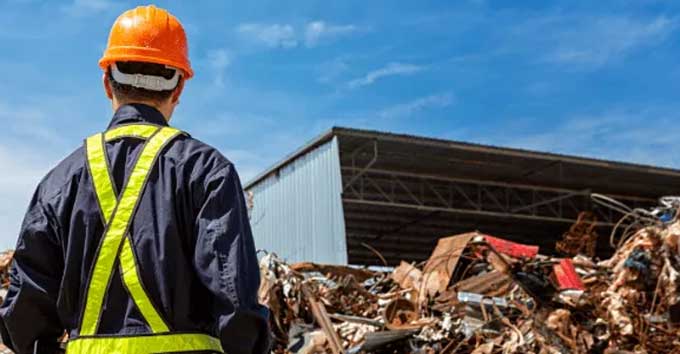
How to reduce wastages in Construction?

Becoming green may be considered a fad by some, but it is certainly not a trend in the building industry. In actuality, it's a sustainable building technique that will persist.
Contractors and construction firms will find it difficult to stay on top of these sustainable building practices as more communities embrace greener building requirements for new projects.
If given the proper tools, a skilled construction manager may minimize waste and material loss. Poor management would result in the loss and wastage of building materials as well as ultimate financial loss. To summarize, effective construction material management requires material control and thoughtful site design.
Construction Waste Minimization Tips
The First Step is to Avoid Creating Waste
You should avoid producing construction trash in the first place if you want to handle it efficiently. It would be quite helpful to take actions like making precise measurements to make sure you have enough stuff to create without any needless leftovers.
You may avoid ordering more supplies than you need by doing routine inventory inspections. Also, correctly teaching your employees on the significance of managing construction trash can enable them to incorporate greener practices into their own job duties.
Constructing with less error leads to less wastages
Some unintentional mistakes can be forgiven but when it comes to construction error in planning could lead to huge wastages.
Occasionally, but, if you notice that your employees are routinely measuring or cutting wrongly, or if they are utilizing the incorrect pipe or piece of lumber, you need to address the underlying cause. If not, many precious materials will wind up on the scrap heap.
Re-training and additional education may be necessary to fix the issue. Mistakes can be costly, so it's important to identify the source of the problem and take steps to address it.
It's also important to create a culture of accountability, so people take responsibility for their mistakes and learn from them.
Make sure your materials are the right size
The same goes for the length of two-by-fours, pipes, or other materials if you can get away with 8-foot drywall rather than 10-foot, since those extra two feet will likely be wasted.
Shop around for the best price, and buy the exact amount you need. Don't forget to measure twice and cut once, and you'll save money in the long run!
Materials Should Be Stored Properly
On construction sites, you won't always be able to transport your supplies in and out of a designated storage space; occasionally, your supplies will need to be spread out across the site.
But, this does not imply that your resources must be destroyed. Instead, you must first safeguard your site to prevent theft and harm.
Brick and other masonry materials should be treated the same way. The most important thing to remember is that your materials represent a significant investment, therefore you must take all precaution to safeguard them.
Recycle the materials
Make it a point to recycle things like paper, plastic, metal, glass, and wood on all of your building sites. In keeping with that, make sure that recycling your salvaged materials is the best approach to cut expenses on building projects.
To prevent these items from ending up in a landfill, the goal is to repurpose them. Although garbage is inevitable in all projects, landfills are one of the worst places to dispose of it.
Types of Construction wastage
Here are a few types of construction wastage:-
Rework and defect waste in construction
There will be wasted concrete in the construction project if a component of a building project is not completed correctly the first time according to the structural design or architectural plan.
This can lead to an increase in costs as well as delays in the project timeline. Additionally, the structural integrity of the building may be compromised if mistakes are not caught in time.
Lack of experience leads to overprocessing
In the case of a younger worker, their rates are likely to be lower, but unnecessary operations processes such as reprocessing, double handling, and double checking will eat up your time and delay the completion of the task.
We must complete all of the construction work efficiently and within the allotted period to prevent time wasting during construction. Otherwise, there will be a cost effect.
Wastage due to movements in materials
If you purchase more supplies than you really need, you will have to move or transfer them to another location on the site, which requires time, labor, and equipment if necessary. that the cost of the entire project is directly impacted by labor, materials, and time.
Moving supplies also exposes them to potential damage, leading to additional costs. It's important to be aware of the cost implications of over-purchasing materials and to plan accordingly.
To learn more, watch the following video tutorial.
Video Source: Hamilton City Council
Wastage due to transportation
When a material is supplied, the location in which it will be placed is equally crucial. Yet, some individuals don't prioritize this issue, which invites labor and time loss in building.
Storing the material in the wrong place can slow the process, leading to delays and additional costs. When deciding where to store materials, safety and convenience should be kept in mind to ensure efficiency.


